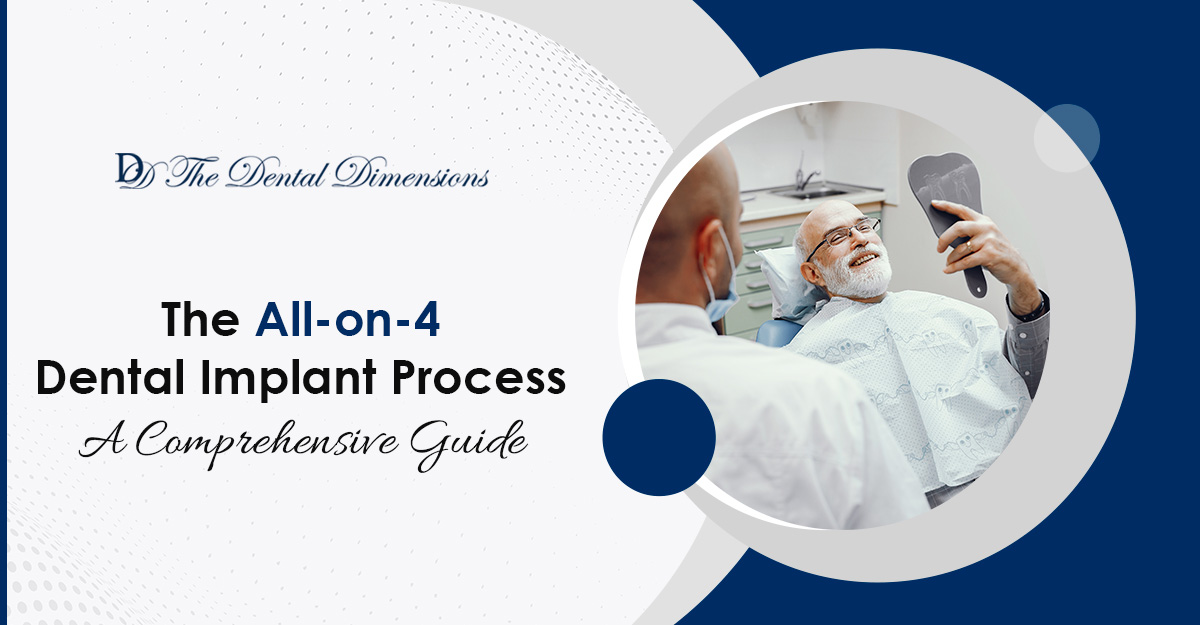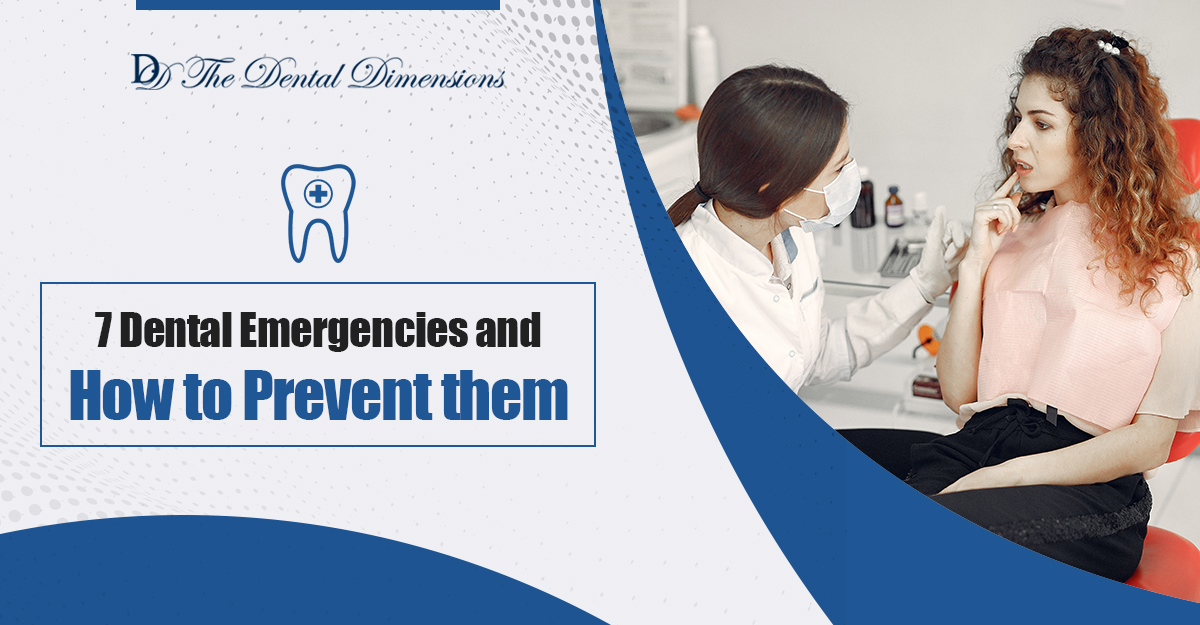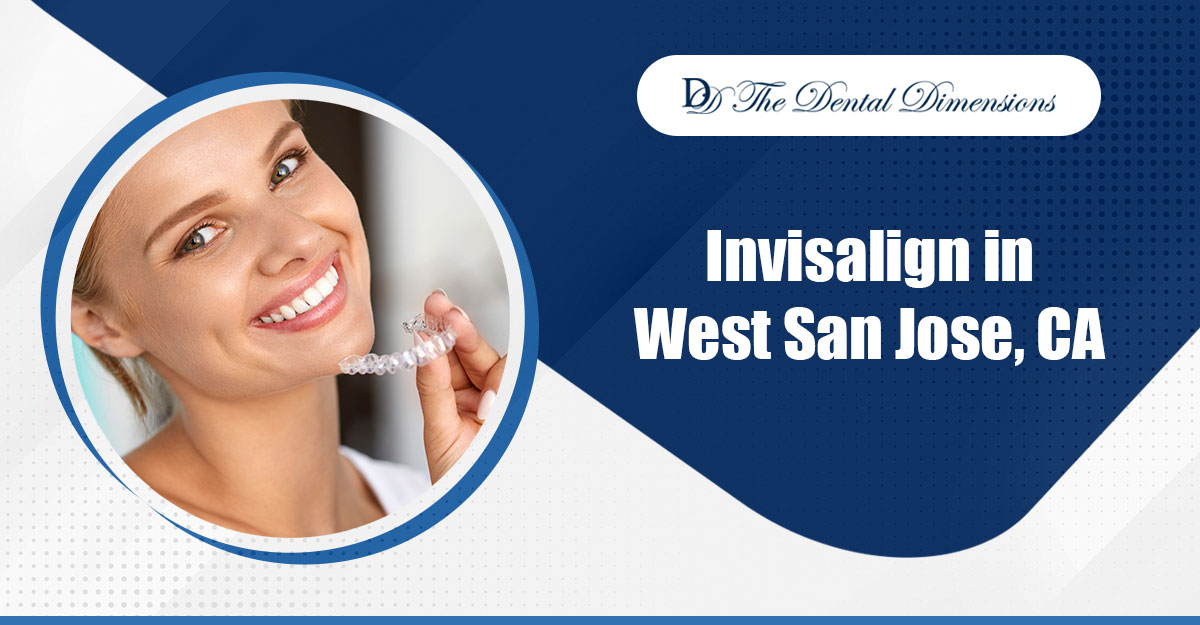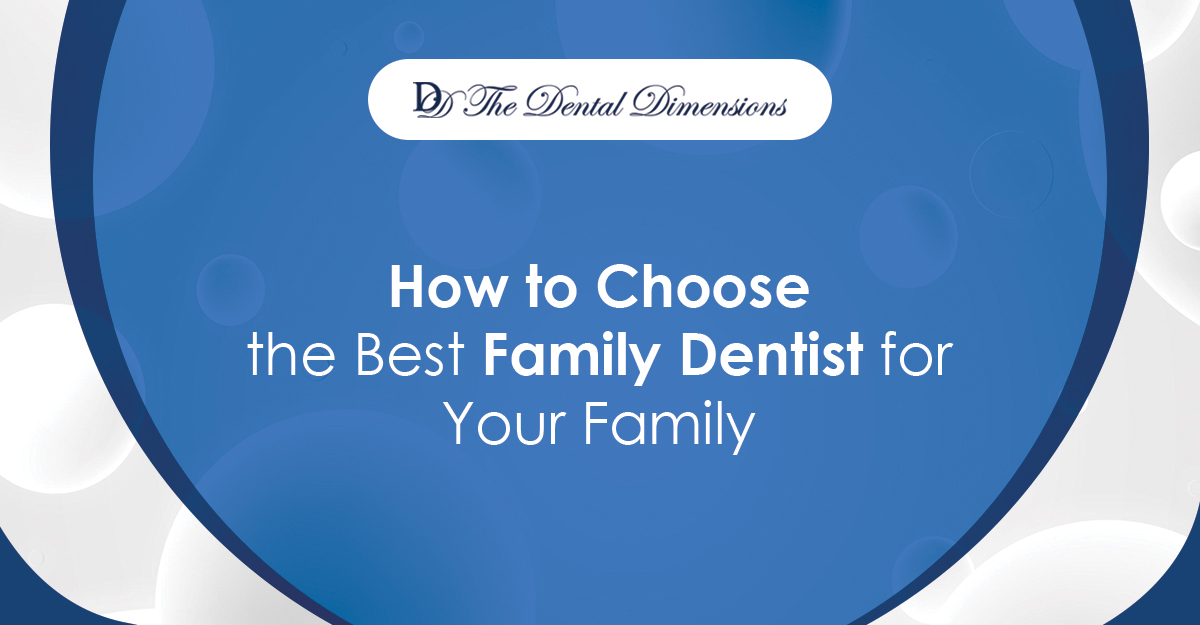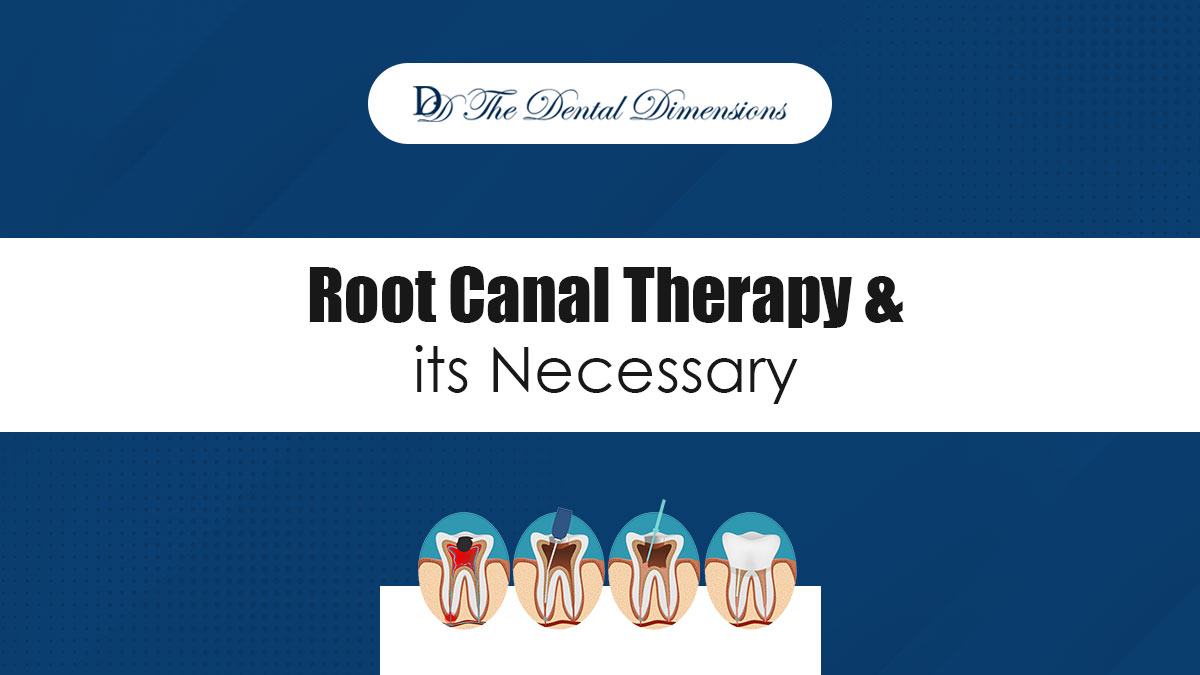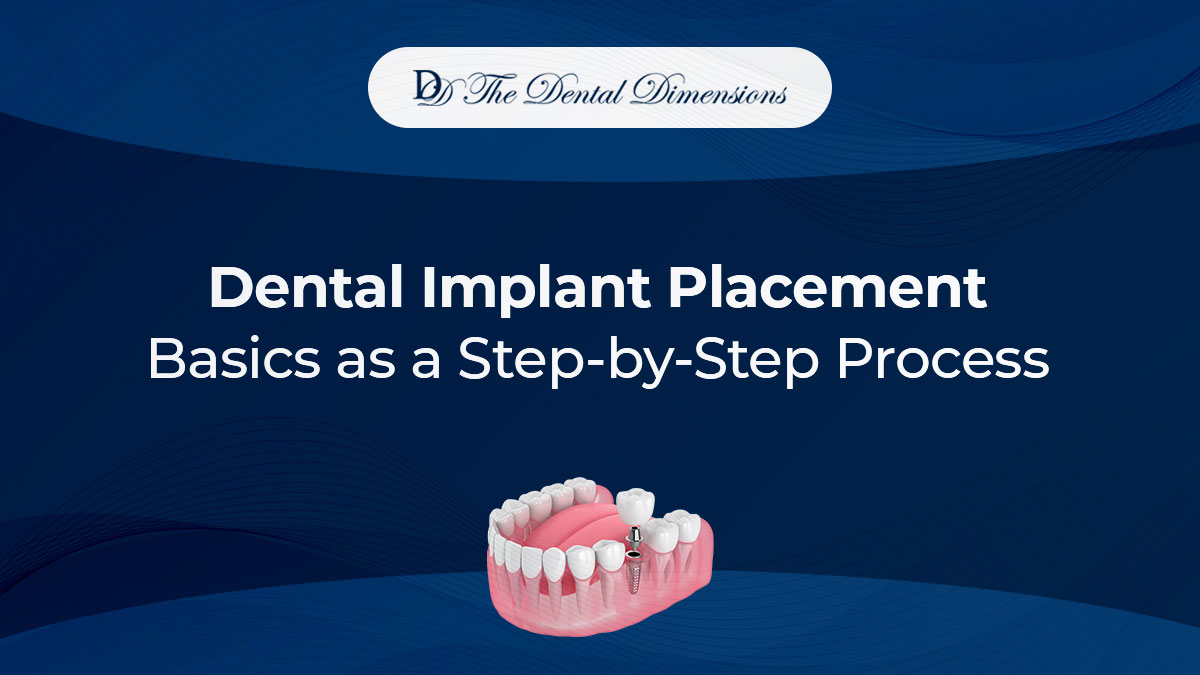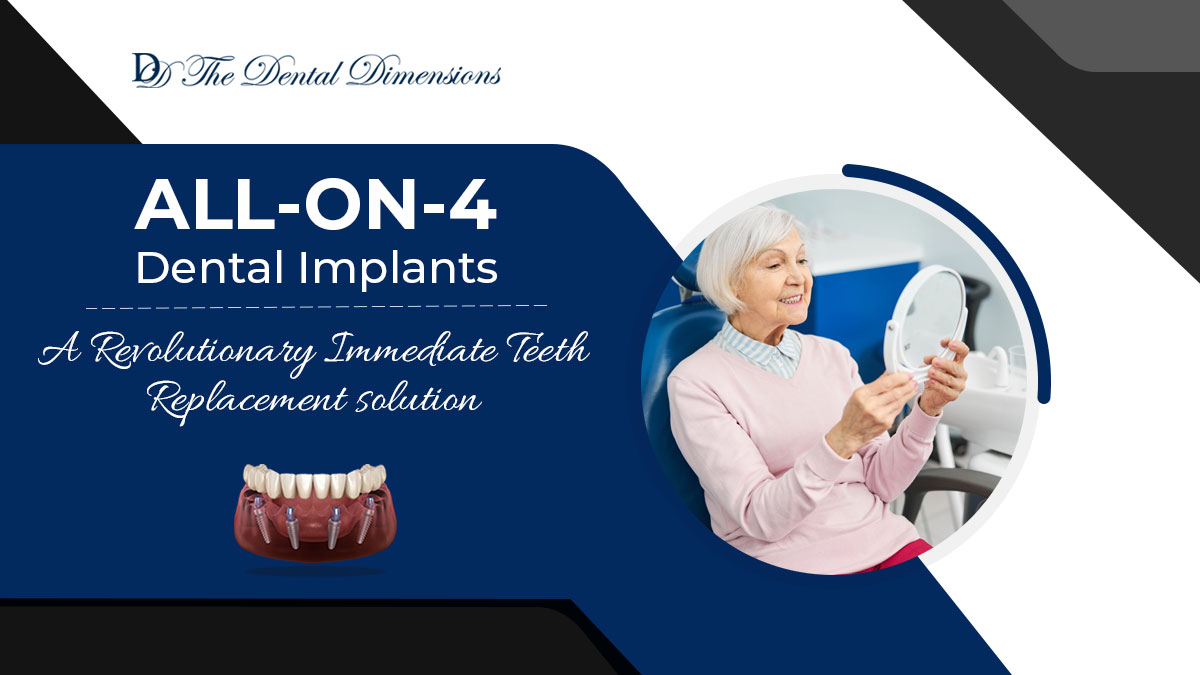Welcome to our comprehensive guide on the All-on-4 dental implant process.
At Dental Dimensions, we understand the importance of providing detailed information to help you make informed decisions about your dental health.
In this article, we will walk you through the All-on-4 procedure from start to finish, ensuring you have a clear understanding of what to expect throughout the treatment journey.
What is the All-on-4 Dental Implant Process?
The All-on-4 dental implant process is a revolutionary solution for individuals suffering from extensive tooth loss or those who require full arch dental restoration. This advanced technique allows for the placement of a complete arch of prosthetic teeth using only four strategically positioned dental implants. By minimizing the number of implants required, the All-on-4 procedure offers numerous benefits, including reduced treatment time and cost, improved stability, and enhanced aesthetics.
The All-on-4 Process: Step by Step
Step 1: Initial Consultation and Examination
The first step in your All-on-4 journey is scheduling an initial consultation with our experienced dental team. During this appointment, we will conduct a thorough examination of your oral health, including the assessment of your jawbone density and overall dental condition. This evaluation helps us determine your candidacy for the All-on-4 procedure and ensures that it is the most suitable treatment option for you.
Step 2: Treatment Planning and Digital Imaging
Once we establish that you are a good candidate for All-on-4, we will proceed with the treatment planning phase. This involves using state-of-the-art digital imaging technology to create a three-dimensional model of your mouth. By doing so, we can precisely plan the placement of the dental implants, ensuring optimal function and aesthetics.
Step 3: Implant Placement
On the day of your implant placement, our skilled oral surgeon will administer a local anesthetic to ensure your comfort throughout the procedure. Using the treatment plan as a guide, the surgeon will strategically position the four implants into your jawbone. These implants act as the foundation for the subsequent attachment of the prosthetic arch.
Step 4: Temporary Prosthesis
Following the implant placement, a temporary prosthesis will be affixed to the implants. This temporary restoration allows you to maintain functionality and aesthetics while the implants integrate with your natural bone, a process known as osseointegration. Our skilled dental technicians will customize the temporary prosthesis to ensure a comfortable fit and natural appearance.
Step 5: Final Prosthesis Placement
Once the osseointegration period is complete, typically after a few months, you will return to our clinic for the placement of your final, permanent prosthetic arch. This custom-made restoration is meticulously designed to match your natural teeth in color, shape, and size, providing you with a beautiful, functional smile.
Step 6: Post-Treatment Care and Maintenance
After the successful completion of your All-on-4 treatment, it is crucial to maintain proper oral hygiene practices and attend regular check-ups with our dental professionals. These routine visits allow us to monitor your dental health, perform necessary maintenance, and address any concerns promptly. With proper care, your All-on-4 implants can last for many years, providing you with a confident smile and restored oral function.
Conclusion
In conclusion, the All-on-4 dental implant process offers a transformative solution for individuals seeking a full arch dental restoration. By providing exceptional stability, aesthetics, and functionality


